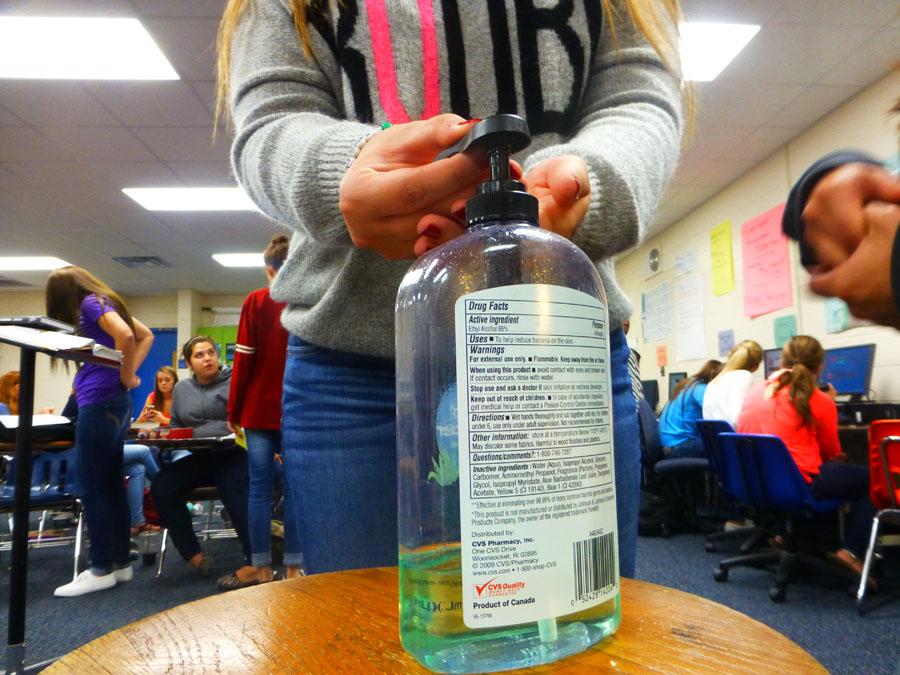Students slow down spread of germs
Students sanitizes her hands in Ms. Thomas’ room, with an almost empty hand sanitizer.
Since the absence policy states that you can only have four absences to be able to exempt most of your exams, then students may want to take steps to prevent themselves from getting sick. Ms. Nolan said, to prevent getting yourself or other student’s sick, “washing your hands, sneezing and coughing into your elbow, and staying home when you are sick,” are actions students should take every day. According to the CDC (centers for disease control), “outbreaks of seasonal flu happen every year, usually during late fall and through early spring in the US.” The CDC also explains the everyday steps to slow the spreading of germs:
•Try to avoid contact with sick people
•If students are sick stay home for at least 24 hours
•Students should wash hands with warm water and soap
•Students should contact with others you know that are sick
•Students should cover their mouth with a tissue when you cough or sneeze, and throw away the used tissue
•Students should avoid touching eyes, nose and mouth
•Staff should clean and disinfect possible germ-contaminated objects such as desks or chairs
Students have their own way of preventing themselves from getting ill. Megan Welch, 9th grade, said, “I always use hand sanitizer throughout the day and wash my hands after I sneeze or cough.” Meg Fister, 9th grade, also said, “When it is cold I always wear jackets and I always wash my hands and use an anti-bacterial sanitizer.” Another 9th grade student Savannah Pendergraft said, “I always wash my hands and sneeze into my elbow.”
Your donation will support the student journalists of Osceola Fundamental High School. Your contribution will allow us to purchase equipment and cover our annual website hosting costs.


